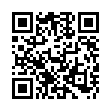|
This article is cited in 2 scientific papers (total in 2 papers)
Artificial Intelligence, Knowledge and Data Engineering
Analytical review of methods for solving data scarcity issues regarding elaboration of automatic speech recognition systems for low-resource languages
I. Kipyatkova, I. Kagirov
St Petersburg Federal Research Center of the Russian Academy of Sciences (SPC RAS)
Abstract:
In this paper, principal methods for solving training data issues for the so-called low-resource languages are discussed, regarding elaboration of automatic speech recognition systems. The notion of low-resource languages is studied and a working definition is coined on the basis of a number of papers on this topic. The main difficulties associated with the application of classical approaches to automatic speech recognition to the material of low-resource languages are determined, and the principal methods used to solve these problems are outlined. The paper discusses the methods for data augmentation, transfer learning and collection of new language data in detail. Depending on specific tasks, methods for audio material and text data augmentation, transfer learning and multi-task learning are distinguished. In Section 4 of the paper the current information support methods, databases and the basic principles of their architecture are discussed with regard to low-resource languages. Conclusions are drawn about the justification of augmentation and knowledge transfer methods for languages with low information support. In the case of unavailability of language data or structurally similar parent models, the preferred option is to collect a new database, including the crowdsourcing technique. Multilanguage learning models are effective for small datasets. If big language data are available, the most efficient method is transfer learning within a language pair. The conclusions made in the course of this this review will be applied to the data of the low-resource Karelian language, for which an automatic speech recognition system has been being created by the authors of this paper since the beginning of the year 2022.
Keywords:
low-resource languages, speech data augmentation, transfer learning, machine learning, language corpora.
Received: 22.06.2022
Citation:
I. Kipyatkova, I. Kagirov, “Analytical review of methods for solving data scarcity issues regarding elaboration of automatic speech recognition systems for low-resource languages”, Informatics and Automation, 21:4 (2022), 678–709
Linking options:
https://www.mathnet.ru/eng/trspy1205 https://www.mathnet.ru/eng/trspy/v21/i4/p678
|

|




 Contact us:
Contact us: Terms of Use
Terms of Use
 Registration to the website
Registration to the website Logotypes
Logotypes








 Citation in format
Citation in format 
